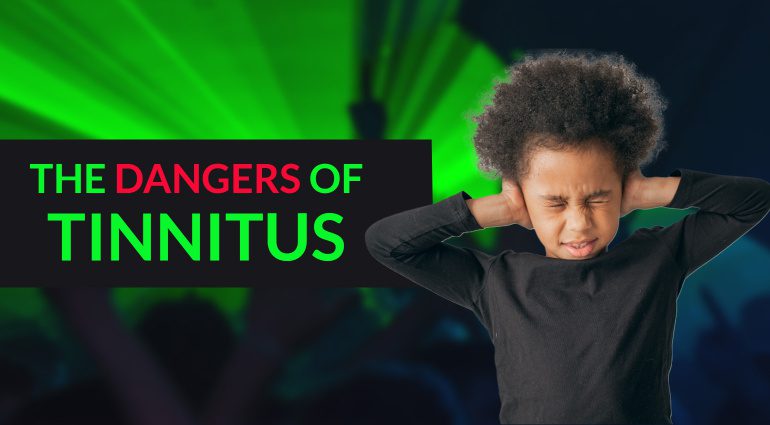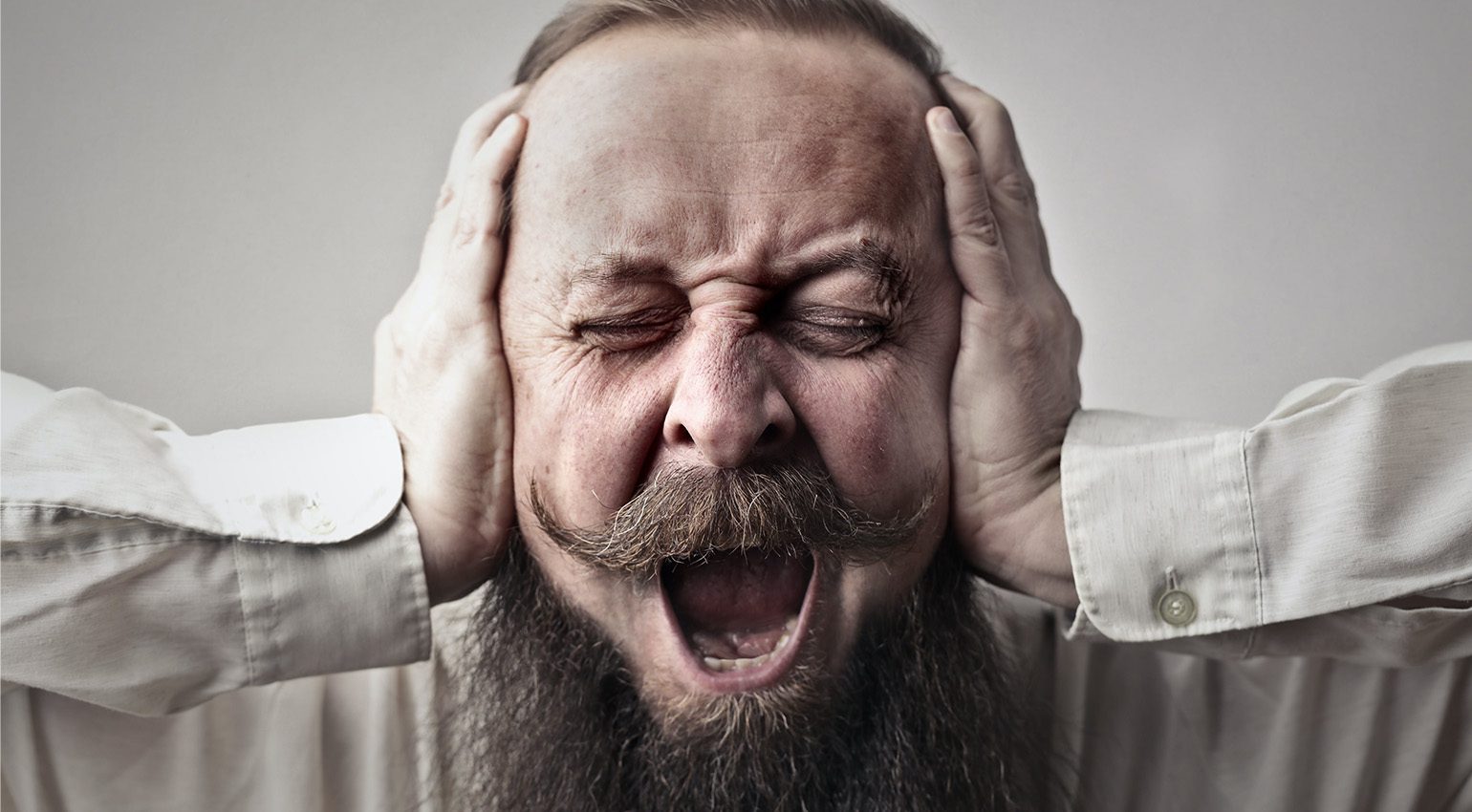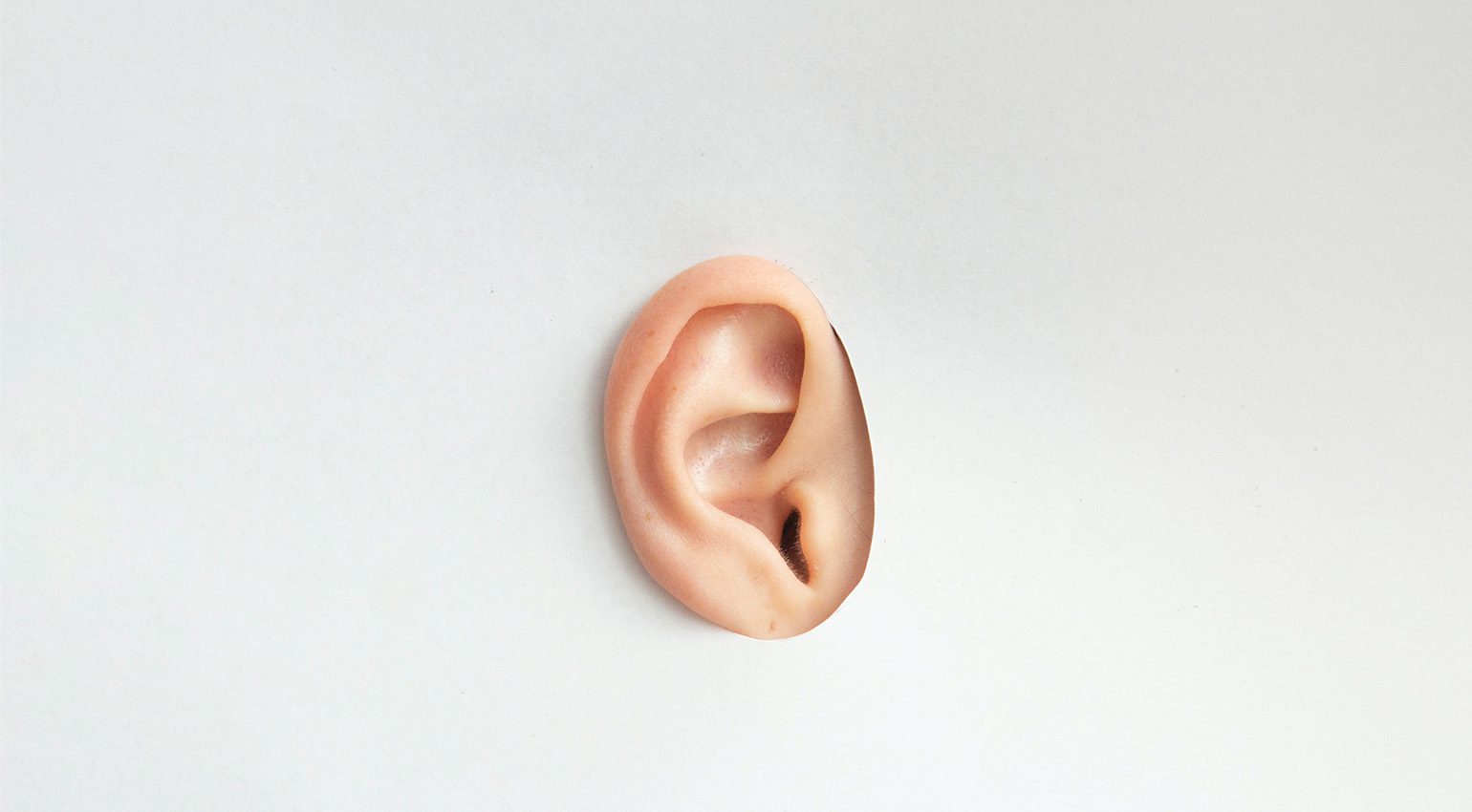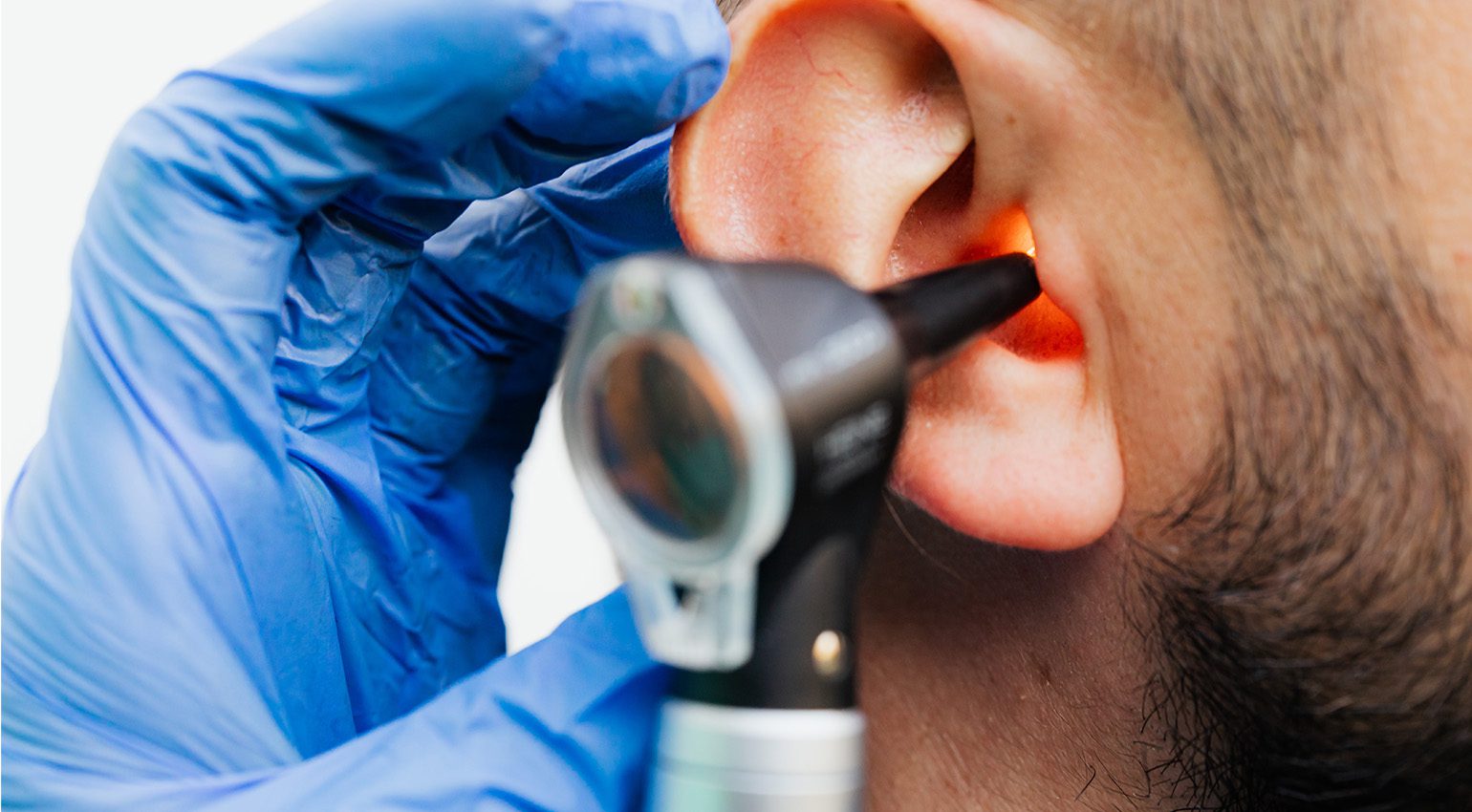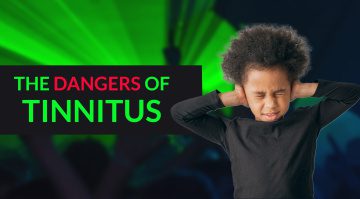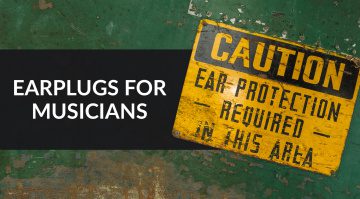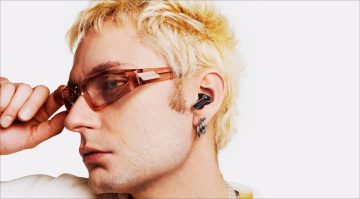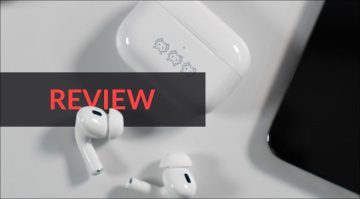The Dangers Of Tinnitus And How To Protect Your Hearing
Protect your hearing.
Tinnitus, or permanent ringing in the ears, is incurable and more and more musicians are suffering from it. Here’s what you need to know.
Tinnitus
You come home from playing a show and it’s there again, that annoying ringing in your ears. At first, you don’t pay it much mind. But a few days later you notice it hasn’t gone away. After a week, you’re really worried. Will it ever stop? Stress builds and you focus more and more on it. You start contemplating giving up playing live music altogether. Your career, you decide, is over.
This is, unfortunately, an all too common situation for those of us working in the music field. I went through the exact same thing as a DJ in the 2000s. One day the ringing just didn’t go away and it’s still with me today. It’s horrible. As more and more young people test poorly for hearing and noise levels at clubs and venues creep ever higher, it’s important that we understand what tinnitus is and how to prevent it – because there’s no cure.
Tinnitus: What Is It?
According to DWM Audiology, a musician-focused audiology clinic based in Melbourne, Australia, tinnitus is “the term used to describe hearing any sounds which are not present externally.” It can manifest as ringing, hissing, buzzing or clicking, and can be a single sound or a number of different sounds. Indeed, my tinnitus is a banshee chorus of whines and whooshes.
Tinnitus has several causes but the primary one is prolonged exposure to loud sounds. According to a document provided to us by DWM Audiology, all types of music – yes, even classical – can pose some risks. “An American study indicated peak noise levels of up to 130dB on stage at rock concerts and 115 dB for the audience. In orchestral music performances, the noise levels on stage can exceed 100dB.” And the percussion section can go even higher – to rock concert levels of 130dB. To put this in perspective, jackhammers and air raid sirens put out 130dB. (You can check your risk level with the Know Your Noise risk calculator.)
Along with tinnitus, musicians and other music professionals are in danger of developing hearing loss, hyperacusis (perceiving ordinary sounds as too loud or distorted) and acoustic shock, a psychological reaction to a sudden, loud noise.
Other Causes
Along with exposure to loud sounds, tinnitus can be brought on by general hearing loss, medications, ear infections, injury or even stress. Robin Johnson, a writer and musician, experienced the latter. “I developed tinnitus in my right ear several years ago,” he told us. “As a musician and songwriter of 40 years, I immediately assumed that sound was the cause. But when I had my ears (extensively) tested, my hearing and response to audible stimuli proved to be normal. My tinnitus is not caused by sound. After considerable further investigation, we worked out that it had been caused by stress. Stress that, in my case, had been so prolonged over the years that it has caused the brain to develop tinnitus. Now, even when I’m not feeling noticeably stressed, the tinnitus is there.”
The Psychological Factor
Something not often talked about with tinnitus is the psychological factor. After developing tinnitus or other auditory issues, musicians may find themselves struggling to manage their situation. They can feel threatened by sounds and, as part of a desire to protect their hearing, withdraw from musical environments.
“Anticipatory anxiety about damage and hypervigilance towards the volume, proximity and duration of loud music exposure from nearby instruments when playing in ensembles, orchestras or bands not only causes hyperacusis and tensor tympani syndrome (acoustic shock) escalation, it undermines any joy from music playing,” literature from DWM Audiology states. This will ultimately affect the musician’s ability to play their musical instrument and may even cause them to withdraw from their profession. This is exactly what happened with me and my DJ career. I essentially quit to protect my ears.
Sound Levels: Safe Practices
What can musicians and music professionals do? We asked Myriam Westcott, a director at DWM Audiology. “The best way for a musician to protect their hearing,” she said, “is to be aware of the safe listening levels – ‘too loud, for too long, too often’ is my mantra regarding risk – and use filtered ear plugs.”
She went on to say that once you are aware of the risk and are safely managing it, you should not be afraid to do music. “You can’t enjoy being a musician if you are hanging back and being tentative,” she says.
Protect Your Hearing
To best protect your hearing, DWM Audiology recommends customised filtered ear plugs. Audiologists will mould them to your ear canal out of soft silicone. They sit deep into the canal to minimize the feeling of blockage. An audiologist must fit the mould. A filter sits in the mould and attenuates volume without stifling frequencies like industrial ear plugs. You can buy filters in a variety of decibel attenuation levels. You can also swap them out depending on the situation.
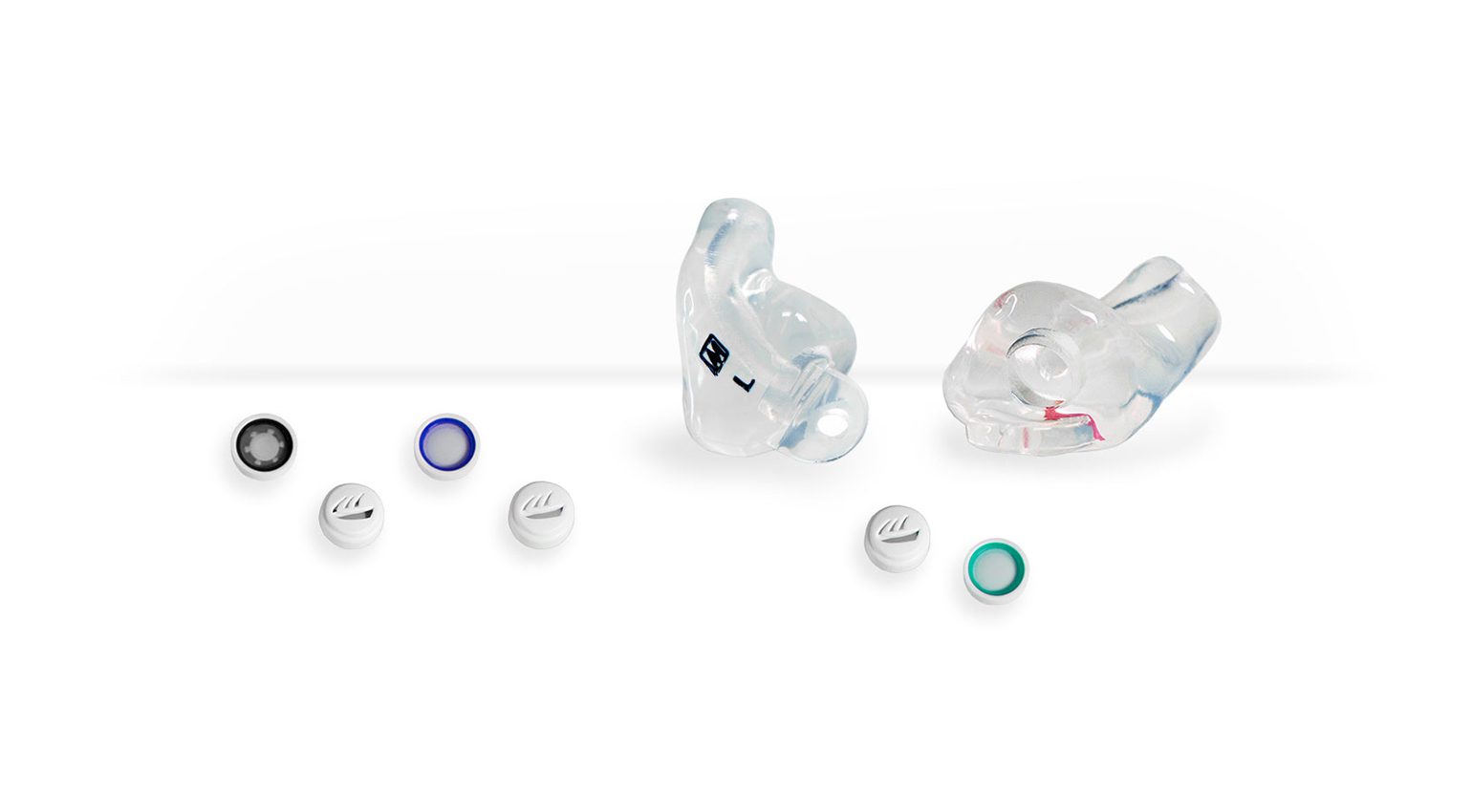
Custom earplugs are available from a variety of companies, including MEE Professional · Source: MEE Professional
There are also a variety of non-customized, off-the-shelf ear plugs that provide protection, if not as comfortably as customized ones.
DWM Audiology also recommends in-ear monitors as a way to control sound levels. If you’re interested in learning more about IEMs, then read our beginner’s guide to in-ear-monitors.
“In an ideal world,” the audiology clinic’s literature says, “the problem should be easily resolved by just turning everything down. But, in the real world, many patrons and therefore promoters expect the music to be at high volume levels for full enjoyment. As a musician, you may not be able to change these expectations.”
We should also be mindful of the stress that we’re feeling. “Protecting your mental health is every bit as important to prevent tinnitus from developing in the first place,” says Robin Johnson, “not just for managing it when it’s too late.”
There’s No Cure
What to do if you find that the ringing in your ears doesn’t stop? Despite what dodgy sponsored posts on Facebook may want you to think, there’s no cure for tinnitus. However, there are ways to minimize the psychological impact. “We are not (yet) able to stop tinnitus emergence in the brain but there is a great deal that can be done to alter the way the brain is perceiving and reacting to tinnitus,” said Myriam. “Most people with tinnitus will spontaneously habituate to their tinnitus over time. (However), some degree of acceptance of the tinnitus is needed.”
Unfortunately, she continued, “In a two-way process, tinnitus awareness, volume and prominence are typically influenced by anxiety, depression and stress. The onset, persistence and escalation of tinnitus can be a highly distressing or even traumatic experience, tapping into the primaeval parts of the brain where sounds (including tinnitus) are evaluated to identify potential threats to one’s safety, wellbeing and survival.”
She summed up that “psychological approaches to assessing and supporting the impact of tinnitus and the individual barriers to tinnitus habituation remain the most effective ways of treating (it).”
Living With Tinnitus
As for me, I’ve had my tinnitus now for almost 20 years. Thankfully, I usually don’t notice it unless I’m in a very quiet environment. Sometimes it seems to flare up, as in periods of increased stress. I try to tell myself that it hasn’t gotten worse, that I’m just currently more aware of it for some reason. I continue to manage it by not wearing earbuds and avoiding loud sounds. I’m primarily an ambient musician these days so it’s not such an issue for me but I recognize that my case is likely unique.
If you feel that you have developed or are developing tinnitus or hearing loss, it’s best to consult an audiologist right away. Please check the links below the video or search online. Consider investing in a set of custom earplugs or in-ear monitors. If you can’t afford those right now, at least use some off-the-shelf ones. Something is better than nothing. You only get one set of ears. Protect them like your livelihood depended on it – because it actually does.

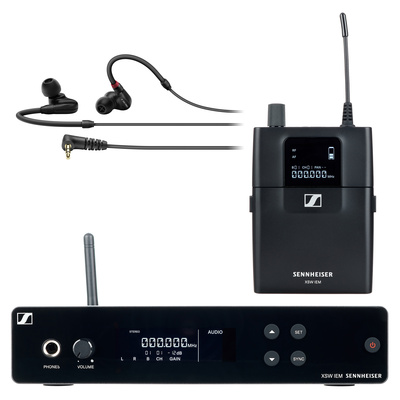

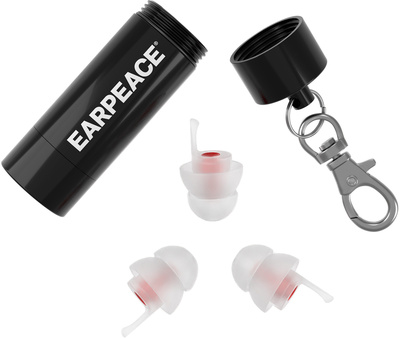

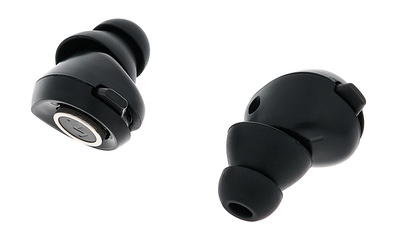
You are currently viewing a placeholder content from YouTube. To access the actual content, click the button below. Please note that doing so will share data with third-party providers.
More information
- DWM Audiology homepage
- Tinnitus Australia website
- Tinnitus UK website
- American Tinnitus Association homepage
- All about in-ear monitoring
- All about live performance
Note that an earlier version of this story erroneously implied that the sole cause of tinnitus is exposure to loud noise when there are in fact numerous causes. We regret the mistake.

 5,0 / 5,0 |
5,0 / 5,0 | 